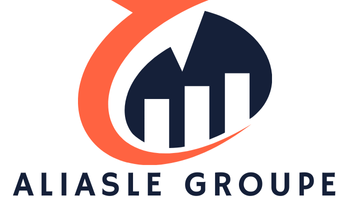Overview of Automated Decision-Making in UK Financial Services
Automated decision-making is a transformative force in the realm of UK financial services. Defined as the use of algorithms or AI systems to make choices traditionally made by humans, it significantly enhances efficiency and accuracy. Financial institutions increasingly rely on these technologies to analyse vast datasets swiftly, leading to more informed decisions at a fraction of the time.
Current trends highlight a surge in the adoption of machine learning and artificial intelligence, where algorithms learn from historical data to predict outcomes with greater precision. This trend is transforming areas such as risk assessment, loan approvals, and fraud detection. Notably, this automation is guided by evolving regulations ensuring ethical use and transparency, thus maintaining trust amongst consumers.
Also to discover : Navigating International Software Development: A Guide to Legally Managing Your IP Rights
Historically, decision-making processes in finance were manual and time-consuming, reliant on human expertise and judgment. However, the evolution of technology has seen a shift towards digitization. Today’s systems offer improved predictive capabilities and unbiased analysis, reshaping the financial landscape in the UK.
In summary, automated decision-making stands as a crucial pillar in the modern UK financial services industry, driving innovation while adhering to stringent standards to safeguard consumers’ interests.
Topic to read : Navigating Post-Brexit Trade: Legal Strategies for UK Businesses to Manage New Agreements
Legal Framework Governing Automated Decision-Making
Understanding the Legal Framework is crucial for businesses implementing automated decision-making systems. Compliance ensures not only lawful operation but also builds trust with consumers and stakeholders.
Relevant UK Laws and Regulations
In the UK, the General Data Protection Regulation (GDPR) plays a pivotal role. It imposes strict guidelines on data protection, significantly impacting automated decision-making. Particularly, GDPR mandates transparency, requiring businesses to provide individuals with understandable explanations of decisions made by automated systems. The Financial Conduct Authority (FCA) also influences this landscape by supervising and enforcing compliance within the financial sector, ensuring that automated systems uphold consumer rights and safety.
International Legal Comparisons
Looking beyond UK’s borders, the European Union offers a comprehensive framework with regulations echoing GDPR’s emphasis on transparency and accountability in automated decision-making. The comparison with the US reveals a less uniform legal framework, focusing more on sector-specific regulations. This contrast highlights the need for international cooperation and learning from case studies to harmonize global legal approaches, fostering innovation while safeguarding individual rights.
Understanding these regulations and compliance requirements is essential for businesses looking to leverage automated systems responsibly and successfully in a global context.
Case Studies in Automated Decision-Making
Real-world case studies of automated decision-making systems offer valuable insights into their practical applications. In the UK, banks and fintech companies have increasingly adopted automated tools to enhance risk assessment processes. These systems efficiently analyse large volumes of data, enabling more accurate and timely decisions regarding credit scores and loan approvals. This has led to improved customer satisfaction by reducing waiting times and increasing the accuracy of financial services.
However, implementing such systems is not without challenges. One significant issue faced by these companies is the difficulty in balancing automation with the need for human oversight to mitigate potential errors and biases. Lessons learned from these real-life applications emphasise the importance of regular audits and updates to the decision-making algorithms to ensure fairness and transparency.
The impact on customer experience cannot be understated. Automated systems provide faster responses and more consistent evaluations, leading to a more reliable service. Moreover, by handling mundane tasks automatically, banks can allocate human resources to more complex queries, enhancing overall efficiency and customer satisfaction. These successful implementations demonstrate the potential for automated decision-making to revolutionise financial services, despite the obstacles encountered throughout the process.
Ethical Considerations
When discussing ethics in financial technology, it’s crucial to address issues of bias and fairness. Algorithmic bias can significantly impact the fairness of automated decisions, such as loan approvals or credit scoring.
Addressing Bias in Algorithms
Algorithmic bias arises when AI models exhibit prejudiced outcomes. This happens due to biased training data or skewed development practices. Such biases can lead to unfair decisions, affecting individuals based on race, gender, or socioeconomic status.
To mitigate this, developers should employ strategies like diversifying data sources and implementing bias detection tools. Additionally, ethical guidelines provided by professional organisations can serve as a framework for developers and financial institutions, urging them to prioritise fairness.
Customer Rights and Transparency
Transparency in technology is foundational to ensure fairness in automated decision-making. Customers have the right to know how decisions are made and to question them if bias is suspected. Regulations such as the General Data Protection Regulation (GDPR) support these rights, fostering a fair digital finance landscape.
Initiatives like explainable AI are also being promoted, ensuring accountability. These aim to demystify AI processes, allowing users to see clearly how decisions are determined and bolstering trust in financial systems.
Potential Risks and Challenges
Navigating the potential legal risks is crucial in the realm of automated decision-making. Financial institutions face the possibility of unforeseen liabilities that stem from errors in automated processes. These could lead to lawsuits or fines if the systems inadvertently violate legal standards or individual rights.
Compliance challenges further complicate matters. Institutions must develop robust compliance strategies to ensure alignment with laws and regulations, which can vary significantly across regions. This task is not trivial, given the dynamic nature of legal frameworks governing automation. Compliance demands constant monitoring and adaptation.
Failing to address these compliance issues can result in dire consequences of non-compliance. Penalties may range from financial fines to reputational damage, affecting the institution’s public image and client trust. Legal repercussions can also involve lengthy litigations and regulatory actions that disrupt business operations.
In essence, understanding and mitigating these risks is not only about avoiding penalties. It’s about safeguarding the integrity of both the institution and the consumer. Financial institutions must diligently evaluate and monitor their automated systems to ensure they are consistent with prevailing legal and compliance standards.
Future Trends and Implications
As the world rapidly evolves, Future Trends in automated decision-making are attracting significant interest. This interest coincides with technological Innovation briskly developing in this field.
Evolving Regulatory Landscape
The future regulatory environment is delicately poised, with evolving laws potentially reshaping automated decision-making. For example, predictions point towards tighter regulations to ensure fairness and transparency. As technology advances, governments are carefully examining regulatory Changes to address potential biases in AI systems. In the UK, the aftermath of Brexit might cause shifts in financial regulation, potentially reshaping established rules and necessitating innovations. This regulatory evolution is important as it seeks to balance innovation with consumer protection. Though technologies promise efficiency and accuracy, it’s vital that regulatory bodies ensure these systems operate within legal and ethical frameworks to protect consumer interests.
Innovations in Technology
The role of AI and machine learning in Innovation offers immense potential for refining financial services. Emerging technologies like blockchain and advanced analytics are at the forefront of this revolution. AI-driven models enhance prediction accuracy, offering bespoke solutions to customers. While innovation propels us forward, maintaining an equilibrium between technological advancement and regulatory compliance remains paramount. This balance is crucial to ensuring that as innovative technologies advance, they do so responsibly and with due regard for established regulations.





